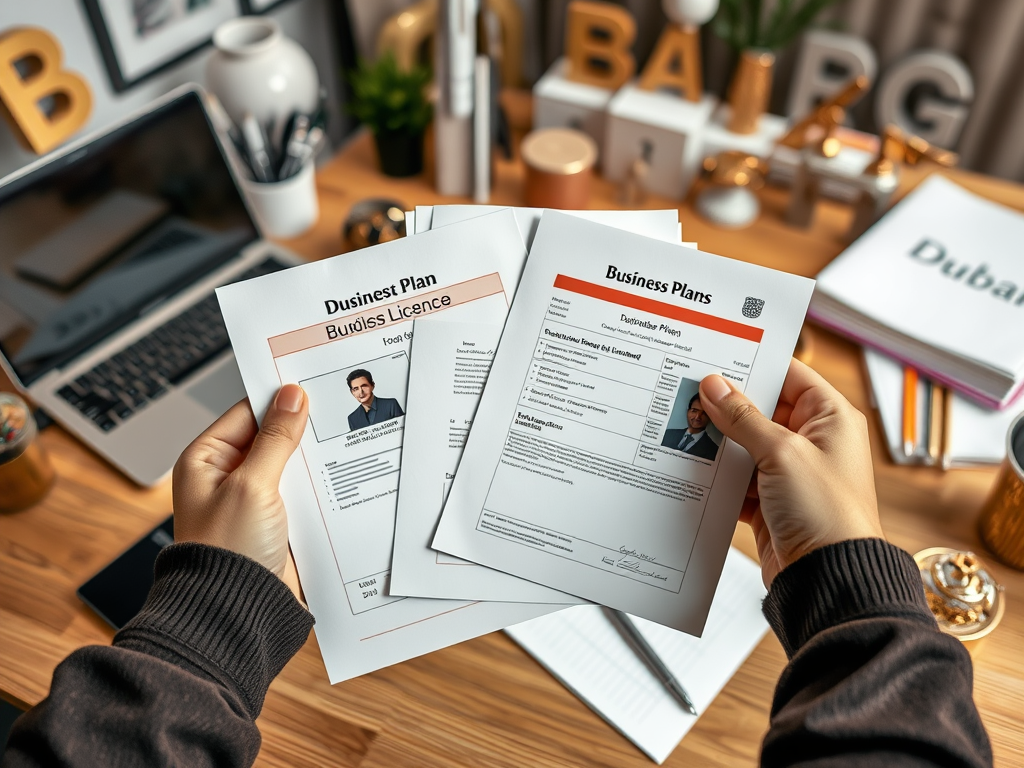As the heartbeat of the Middle Eastern economy, Dubai is not just a tourist destination; it’s also a hub for business and trade. For entrepreneurs eyeing this lucrative marketplace, navigating the complexities of local regulations becomes paramount. One of the critical steps in establishing a successful business here is securing the appropriate trading licence. This vital document not only legitimizes your business operations but also opens doors to numerous opportunities across diverse sectors. From trading goods to providing various professional services, understanding the types and processes associated with a trading licence in Dubai can significantly impact your venture’s success. Thus, let’s dive into the core aspects of trading licences that every entrepreneur should know.
Types of Trading Licences in Dubai

Dubai’s regulatory environment offers several trading licences tailored to the nature of different business activities. It is crucial for aspiring business owners to choose the licence that aligns with their operational needs. The three primary categories of trading licences include:
- Commercial Licence: Required for businesses engaged in trading goods and commodities.
- Industrial Licence: Essential for businesses involved in manufacturing and production.
- Professional Licence: Aimed at service-oriented businesses and professionals.
Understanding the nuances of each type is vital for compliance and operational efficiency. Let’s explore each of these licence types in detail.
Commercial Licence
A commercial licence is perhaps the most common type sought after by entrepreneurs in Dubai. This licence covers businesses that are involved in importing, exporting, and trading products. Before proceeding with this type of licence, it is essential to define the specific types of goods you intend to trade. For example, whether you’ll be dealing in consumer goods, electronics, or textiles can influence the licensing requirements. Furthermore, each commercial activity may have additional regulations or prerequisites that you’ll need to adhere to. Ensure that you’re aware of the latest regulations to avoid potential legal challenges down the line.
Industrial Licence
The industrial licence is targeted at businesses that focus on manufacturing activities. This includes producing goods or engaging in any form of industrial production. A key factor to note is that businesses with an industrial licence may also be eligible for various incentives from the government, motivating growth in the manufacturing sector. To obtain this type of licence, businesses must typically comply with specific zoning regulations and facility standards. Furthermore, an industrial licence may require inspections by the relevant authorities to ensure health and safety compliance.
Professional Licence
For service-based businesses, a professional licence is the way to go. This category covers a wide array of activities, from consulting services to artistic professions. It is essential for business operators in this category to highlight their professional qualifications and expertise during the application process. Additionally, a professional licence often requires a local sponsor or business partner, which adds another layer to the licensing journey. Service-oriented businesses can thrive with the right strategies and compliance, leading to sustainable growth in the competitive Dubai market.
The Process of Obtaining a Trading Licence in Dubai

Obtaining a trading licence in Dubai involves several key steps. Each stage requires attention to detail and thorough understanding. Here’s a simplified outline of the entire process:
- Determine your business activity.
- Choose a suitable business structure.
- Register your trade name.
- Prepare and submit your application.
- Finalise your business location.
Breaking this down further can provide clarity and improve the chances of a smooth application process. Let’s examine each step in detail to help simplify your endeavours.
Step 1: Determine Your Business Activity
The first step in securing a trading licence is to define the nature of your business. Consider the products or services you plan to offer, as these factors will guide the next steps in your licensing process. Impactful market research can assist in ensuring your chosen business activity has demand in Dubai’s diverse market. Reassessing your target audience and competitors helps in aligning your business strategy accordingly. Ensure you have an in-depth understanding of any regulations specific to your chosen activity, as this can affect licensing requirements.
Step 2: Choose a Business Structure
Your choice of business structure has pivotal implications for the kind of licence you will need. Common structures include Limited Liability Company (LLC), Sole Proprietorship, and Civil Company. Each structure has different legal obligations, owner liabilities, and funding requirements. In Dubai, an LLC is a popular choice due to its liability protection while allowing for foreign ownership within specified limits. Knowing your options will enable you to select a business structure that supports your operational goals and ease of obtaining a trading licence.
Step 3: Register Your Trade Name
Choosing an appropriate trade name is critical as it represents your brand. Ensure your trade name is unique, reflective of your business activities, and adheres to the guidelines established by the Dubai Department of Economic Development (DED). It is advisable to conduct a name availability check before registration to avoid any legal hassles. Once you’ve chosen a name, you’ll need to reserve it with the DED. Understanding the impact of your brand on consumer perception should also guide your choice of trade name.
| Business Structure | Ownership | Liability |
|---|---|---|
| Limited Liability Company (LLC) | Shared between partners | Limited to capital investment |
| Sole Proprietorship | Single-owner | Unlimited liability |
| Civil Company | Multiple owners | Joint liability |
Step 4: Applying for the Licence
With the preliminary steps accomplished, it’s time to apply for your trading licence. Prepare the necessary documents, which often include a passport copy, proof of address, and a copy of your trade name reservation. Your application will also need to be accompanied by a detailed business plan that highlights your business goals and strategies. Fees will vary based on the type of licence and business structure, so it’s important to understand these costs fully. Submitting a complete and accurate application is crucial, as any discrepancies can delay the process significantly.
Step 5: Finalising Your Business Location
Choosing a suitable physical location for your operations is the final step in the licensing process. Your business location must comply with local zoning regulations, which can vary widely in Dubai. Depending on your business type, you may choose from commercial, industrial, or retail zones. Additionally, securing leases and permits for your property is necessary. Make sure to document all agreements and approvals, as they may be required in future audits or renewals of your trading licence.
Costs Involved in Obtaining a Trading Licence
Understanding the financial commitments associated with a trading licence in Dubai is critical for efficient budgeting. The costs can vary significantly depending on the type of licence, business structure, and additional fees such as registration and legal services. Here’s a breakdown of potential costs:
- Initial registration fee: AED 1,000 – AED 5,000
- Licence issuance fee: AED 8,000 – AED 20,000
- Local sponsor fee: AED 5,000 – AED 10,000 annually (if applicable)
- Additional service fees: AED 2,000 – AED 5,000 for documentation and approval services
Being well-informed about these financial aspects makes it easier to gauge the total investment required for launching your business. Always set aside some contingency funding for unexpected fees that may arise during the licensing process.
Conclusion
In summary, acquiring a trading licence in Dubai is a vital step for anyone looking to do business in this dynamic city. The different types of licences—commercial, industrial, and professional—each serve unique business needs and must be chosen wisely. Navigating the process can be complex, but by following the established steps, understanding the associated costs, and having a solid business plan, entrepreneurs can successfully establish their presence in Dubai’s vibrant economy. This thorough preparation and compliance can lead to fruitful business opportunities and sustainability in the long run.
Frequently Asked Questions
- What is a trading licence in Dubai? A trading licence is a legal document that permits individuals or companies to conduct trade and commercial activities in Dubai.
- How long does it take to obtain a trading licence? The timeframe can vary, but it typically takes between 2 to 5 weeks, depending on the business type and the completeness of the application.
- What are the costs associated with obtaining a trading licence? Costs vary based on licence type and business structure, ranging from AED 10,000 to AED 50,000 or more.
- Can foreign investors apply for a trading licence in Dubai? Yes, foreign investors can apply for a trading licence, but they may need a local sponsor depending on the type of trade.
- Is it necessary to renew the trading licence? Yes, trading licences in Dubai must be renewed annually to ensure compliance with local regulations.
